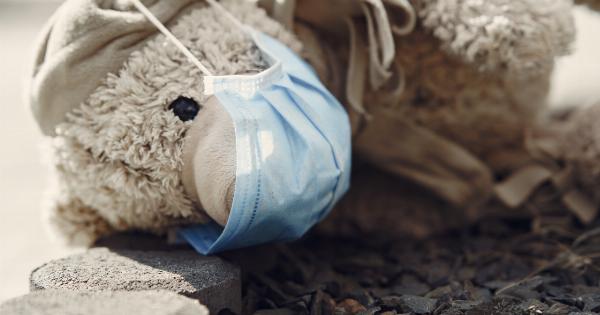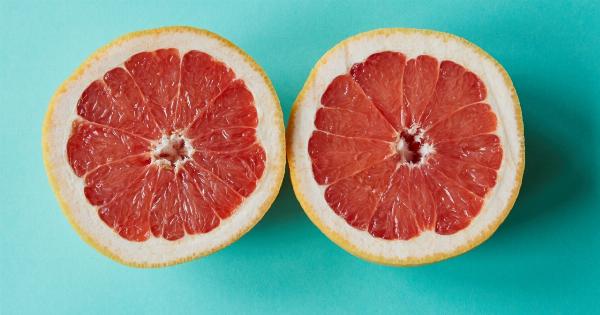Kidney stones are a common problem and almost everyone has dealt with them once, at least once in their lifetime. The pain and discomfort caused by kidney stones can be excruciating.
Individuals who have already experienced a kidney stone attack may experience recurrences, which can be unpleasant and inconvenient. However, the good news is that there are simple tips and tricks that can help you avoid kidney stone relapses. In this article, we will discuss some of the significant steps for preventing kidney stone relapses.
Stay Hydrated
The most crucial step for preventing kidney stones is to stay well hydrated. Drinking plenty of liquids can help dissolve mineral salts and reduce concentrated urine levels. The ideal fluid to consume is water.
Drinking at least eight glasses of water a day can help prevent the formation of kidney stones. Drinking fluids helps flush out harmful toxins and minerals that could form kidney stones.
Studies also suggest that drinking lemonade or limeade can help decrease the risk of kidney stones due to its citric acid that can reduce the accumulation of calcium crystals in the urine.
Control Your Sodium Intake
Salt is a significant culprit behind the development of kidney stones. Consuming too much sodium can increase the concentration of calcium in the urine, leading to the formation of kidney stones.
Individuals suffering from kidney stones should consume less than 2,300 milligrams of sodium a day. A low-sodium diet can also help control high blood pressure and reduce the risk of heart disease.
Increase Your Calcium Intake
Calcium is an essential mineral responsible for the formation of bones and teeth. Many people believe that calcium can increase the risk of kidney stones.
However, research suggests that adequate calcium intake can reduce the accumulation of oxalate in the urine, which can prevent the formation of kidney stones. The recommended daily calcium intake for adults is between 1,000 and 1,200 milligrams a day.
Avoid Oxalate-rich Foods
Oxalate is a substance that binds with calcium to form kidney stones. Foods that are high in oxalate should be limited or avoided to prevent the likelihood of kidney stones.
Some of the foods rich in oxalate include beets, spinach, sweet potatoes, nuts, soy products, and chocolate. If you have had kidney stones, avoid consuming these foods or limit their intake.
Eat a Balanced Diet
A well-balanced diet can help prevent the formation of kidney stones. Try to incorporate fruits, vegetables, and whole grains in your diet to get adequate nutrients and minerals.
Several studies suggest that eating a plant-based diet can significantly reduce the risk of kidney stones. Also, avoid eating processed foods and junk food that are high in sugar and unhealthy fats.
Exercise Regularly
Exercise offers numerous benefits, including preventing the formation of kidney stones. Regular exercise can help maintain a healthy body weight, reduce stress, and boost your overall health.
Physical activity can help regulate blood pressure, manage diabetes, and improve your cardiovascular health. Additionally, staying active can prevent constipation, which can lead to the formation of kidney stones.
Reduce Your Alcohol and Caffeine Intake
Consuming too much alcohol or caffeine can increase the risk of kidney stones. Alcohol and caffeine can disrupt the body’s natural balance, leading to dehydration and concentrated urine.
As a result, it can increase the concentration of minerals in the urine, leading to the formation of kidney stones. If you’ve already had kidney stones, it’s better to limit or avoid alcohol and caffeine altogether.
Monitor Your Medications
Several medications can also contribute to the formation of kidney stones. Some drugs can increase the levels of calcium in the urine, while others can disrupt the body’s mineral balance.
If you are taking any medication that can increase the likelihood of kidney stones, talk to your doctor about the dosage or alternative medication.
Always Stay Alert and Seek Medical Assistance When Necessary
If you have had a kidney stone attack, you are at risk of relapses. However, by adopting some simple lifestyle habits and dietary changes, you can effectively prevent the formation of kidney stones.
Remember to monitor your fluid intake, control your sodium intake, eat a balanced diet, exercise regularly, monitor your medications, and avoid alcohol and caffeine. If you experience any symptoms of kidney stones, seek medical attention immediately. It’s better to be safe than sorry.






























